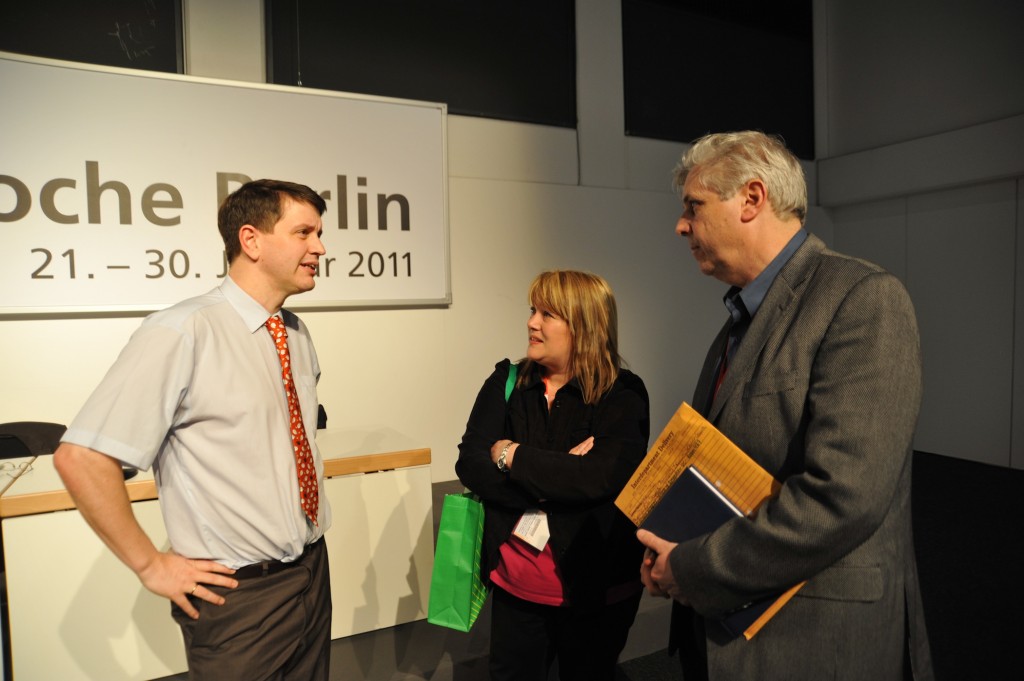
Roger Waite (left) of the EU agriculture commissioner's office is pictured here discussing policy matters at Green Week in Berlin with Canada's IFAJ executive representative Allison Finnamore and me. (photo by Steve Werblow)
Canada’s balance between biodiversity and biotechnology was raised at a news conference of international agriculture ministers I attended recently in Berlin, Germany. The ministerial gathering had been convened by Germany’s Ilse Aigner, and among the participants was Canadian representative Gerry Ritz. He had earlier discussed Canada’s biodiverse agri-food sector, and his remarks gave the German media cause to ask the European Union agriculture commissioner when Europe would be warming up to new technologies.
It was a timely question. The European Union is rewriting its overarching common agricultural policy. It’s considering easing import restrictions on genetically modified crops from Canada and elsewhere, which have been mostly banned there. The official word lately has been that the EU is going to let member states make their own decisions about genetic modifications.
But I’m not so sure Europe is that far along. Listening to agricultural and political leaders speak at news conferences and information sessions underlined a significant point to me — that the same wonderfully diverse culture that makes the EU so unique is also a stumbling block for consensus on thorny issues such as technology, especially genetically modified products.
Roger Waite, the EU’s press spokesman for agriculture and rural development, said the EU wants to encourage faster technology transfer and that farmers’ access to innovation is important, as the agricultural policy there is being revised.
But broadly, it’s hard to think of a bigger innovation in agriculture than biotechnology.
Said my colleague from Ukraine: “So, the EU is for innovation, but against biotechnology? That doesn’t make sense.â€
The issue is that technology moves faster than culture. I write about it in my Urban Cowboy column in the Guelph Mercury.

